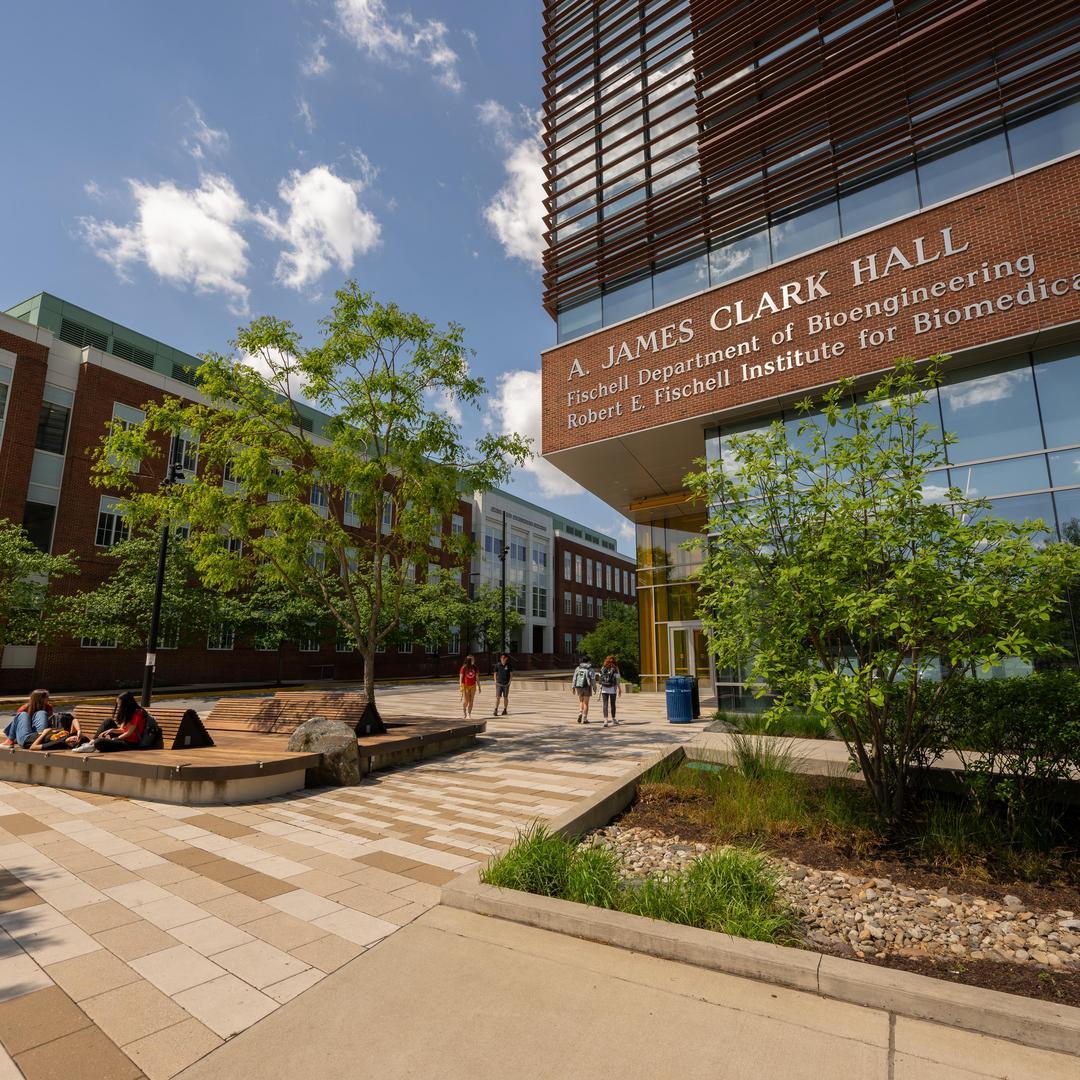Space Technology Showcase
Join us for the inaugural 2025 Maryland Space Technology Showcase hosted by the Center for Advanced Space Science and Technology Research at UMD.
This cross-campus event highlights the breadth and impact of space-related research happening at the University of Maryland.
From orbital debris and asteroid detection to lunar landers, rovers, and instruments, this showcase will feature poster presentations from UMD faculty, researchers and students, including recipients of joint UMD/Johns Hopkins Applied Physics Laboratory (APL) seed grants.
This showcase event of Maryland’s contributions to the space ecosystem is aimed at fostering collaboration and awareness across academia, industry, and government as a leader in space research and innovation.
Get a sneak peek at what’s on the horizon at Maryland!
EVENT DETAILS
WHEN: Wednesday, October 15, 2025
TIME: 1 - 3 PM
WHERE: A. James Clark Hall (AJC), Forum 1101
8278 Paint Branch Dr, College Park, MD 20742
PARKING: XFinity Visitor Parking Lot, Paint Branch Drive
Light refreshments will be provided.

KEYNOTE SPEAKER

Dr. Nancy L. Chabot
Chief Scientist, Space Exploration Sector
Johns Hopkins Applied Physics Lab
Dr. Chabot will discuss how the scientists and engineers of the DART mission successfully changed the orbit of an asteroid, demonstrating a technology that could be used to protect Earth from hazardous asteroids in the future.
Dr. Nancy L. Chabot was the coordination lead on NASA’s Double Asteroid Redirection Test (DART) mission, is the deputy principal investigator for the Mars-moon Exploration with GAmma rays and NEutrons (MEGANE) instrument on the JAXA Martian Moons eXploration (MMX) mission, and is an interdisciplinary scientist on the joint ESA-JAXA BepiColombo mission. On NASA’s MESSENGER mission, she was the instrument scientist for the Mercury Dual Imaging System (MDIS) and the chair of the Geology Discipline Group. She has been a member of five field teams with the Antarctic Search for Meteorites (ANSMET) program.
POSTER PRESENTATIONS
- Rapid Pre-Discovery of Near-Earth Objects
- The Lunar Environment Monitoring Station for Artemis III
- 3D-Printed Antenna for Space Applications
- 2D Soliton Characterization for Debris Detection
- Chemical Imaging with a Spaceflight LDMS Instrument for Planetary Exploration
- MW-NeRF: Modeling Shadowed Spacecraft
- Human Capacity for Portable Life Support System Mass in Mars EVAs
- Discrete Element Modeling Implementation of a Patched Surface Tribocharging Model for Particle-Mesh Interactions
- Risk-Sensitive Reinforcement Learning for Spacecraft Autonomy
- Super-Additive Joint-Detection Optical Receiver for Deep-Space
- Neural Ordinary Differential Equations for Astrodynamics Applications
- Highly Pixelated Energetic Particle Sensor
- Space Debris Charging Mechanisms in Ionospheric Plasmas
- Gecko Roller Dust Mitigation System
- Space Domain Awareness with Event Cameras
- The Planetary Lorentz Perturbation and Applications to Charged Space Debris
- Robotic Teleoperation using an Exoskeleton
- On the Fabrication of Ultra-thin Composite Rotors for Martian Flight
- Rotational Cleaning of Gecko Roller
- Exploring the Molecular Space of Extraterrestrial and Terrestrial Organic Matter
Event Contact:
Dr. Christine Hartzell
Professor & Director, ASTRA
hartzell@umd.edu

